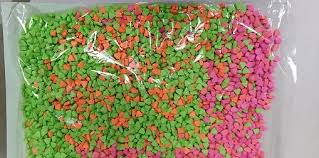Uncategorized
MDMA for Sale? What to Know Before You Try Therapy
MDMA therapy is gaining attention as a breakthrough treatment for several mental health conditions that have been difficult to manage with traditional methods. If you’ve been struggling with anxiety, PTSD, or depression and haven’t found relief, you might be wondering if this treatment is right for you. While MDMA is still undergoing clinical trials in many places, the results so far have been promising. Here’s a closer look at who may qualify and how this therapy could change lives when you buy mdma.
MDMA Therapy for PTSD – A Life-Changing Approach
One of the most well-known uses of MDMA therapy is for treating post-traumatic stress disorder (PTSD). PTSD can affect anyone who has experienced a traumatic event, leaving them with intrusive memories, nightmares, and emotional distress. Traditional treatments, like talk therapy and medication, don’t work for everyone, which is why researchers have been looking for new solutions to buy mdma.
MDMA-assisted therapy helps by reducing fear and anxiety, allowing individuals to process their trauma in a safe and supportive environment. Clinical trials have shown that many people who undergo MDMA therapy experience a significant reduction in PTSD symptoms. This is because MDMA can help the brain rewire how it responds to traumatic memories, making healing possible where other treatments have failed. If you’ve tried conventional PTSD treatments with little success, this could be a game-changer for you.
Can MDMA Therapy Help with Depression and Anxiety?
Depression and anxiety can feel overwhelming, making everyday tasks seem impossible. If you’ve tried therapy and medication but still struggle with persistent sadness or excessive worry, MDMA therapy might be an option worth exploring. Research suggests that MDMA can enhance emotional openness, increase self-compassion, and improve communication in therapy sessions, so buy mdma now.
MDMA works by boosting serotonin, dopamine, and oxytocin—neurotransmitters responsible for mood, connection, and well-being. When used under professional guidance, this can lead to deep emotional breakthroughs, helping people see their struggles from a new perspective. Many participants in studies report feeling lighter, more hopeful, and less burdened by negative emotions after their sessions. While you can’t just buy MDMA and try it at home (it’s still a controlled substance), clinical settings ensure that the experience is both safe and therapeutic.
MDMA Therapy and Social Anxiety – A Path to Confidence
Do you often feel nervous in social situations, avoid gatherings, or worry excessively about what others think? If so, you might have social anxiety. This condition can be isolating and make it difficult to build relationships, leading to loneliness and low self-esteem.
MDMA therapy has shown promise in helping people with social anxiety by increasing feelings of trust, emotional openness, and confidence. Because MDMA lowers fear responses in the brain, it allows individuals to engage with others more freely without the usual self-doubt and worry. Some studies even suggest that this could be beneficial for people with autism who struggle with social interactions.
Unlike traditional anti-anxiety medications, which can numb emotions, MDMA helps people process their fears in a meaningful way. If social anxiety is holding you back, MDMA therapy could help you feel more at ease and connected with others.
How to Prepare for an MDMA Session – Mindset, Setting & Expectations
MDMA can be a deeply rewarding experience, but preparation is key to ensuring everything goes smoothly. Whether you’re exploring personal growth, deepening connections, or just having a joyful time, setting yourself up properly can make all the difference. By taking care of your mindset, choosing the right setting, and managing expectations, you can create a safe and enjoyable experience. Let’s dive into the essentials!
Mindset: Start with the Right Mental Space
Your mental state before an MDMA session plays a huge role in how your experience unfolds. If you’re feeling anxious, stressed, or overwhelmed, it might not be the best time. MDMA tends to amplify emotions, so if you’re carrying unresolved negativity, it could come to the surface. Instead, take some time to center yourself—meditate, journal, or have a deep conversation with a trusted friend. Approach the experience with an open heart, positive intention, and curiosity about what you might discover.
It’s also helpful to set a purpose. Are you looking for emotional healing, enhanced social bonding, or simply a night of fun? Having a clear intention can guide your journey in a meaningful direction. But don’t get too attached to a specific outcome—MDMA has a way of surprising you in beautiful and unexpected ways.
Setting: Create a Safe & Comfortable Space
Where you take MDMA matters just as much as your mindset. Your surroundings will heavily influence how you feel, so pick a setting that feels safe, cozy, and welcoming. If you’re staying in, prepare your space with soft lighting, comfy blankets, and a playlist that sets the right mood. Music can be a powerful emotional guide, so choose tracks that make you feel good.
If you’re going out to an event or festival, make sure it’s somewhere you feel comfortable and surrounded by people you trust. Having a designated sober friend or “trip sitter” can be a great idea, especially if it’s your first time. They can help you stay grounded if things get overwhelming.
Hydration is also key—but don’t overdo it. MDMA can increase body temperature and cause dehydration, especially if you’re dancing. Sip water regularly, but avoid drinking excessive amounts to prevent any health risks. Coconut water or electrolyte drinks are great options to keep your body balanced.
Expectations: Stay Open to the Experience
MDMA can bring about a range of emotions, from euphoria and deep connection to unexpected waves of introspection. The key is to embrace whatever comes up and trust that the experience will unfold as it’s meant to. Some moments might feel overwhelmingly beautiful, while others could bring up emotions you didn’t expect. That’s okay—just go with the flow and remind yourself that it’s all part of the journey.
It’s also important to understand that while MDMA can create a powerful sense of closeness and love, the feelings aren’t necessarily a reflection of permanent reality. The emotional insights can be valuable, but decisions made under the influence might need reassessing later. Take what you learn and integrate it thoughtfully into your daily life.
What Happens After Therapy? – Integration and Long-Term Benefits
So, you’ve just wrapped up a powerful therapy session—now what? The real work begins after therapy, as you take the insights you’ve gained and apply them to everyday life. This process, known as integration, is crucial for making lasting changes and reaping the full benefits of your healing journey. Whether you’ve explored deep emotions, uncovered new perspectives, or had an MDMA-assisted session, thoughtful integration can help solidify the positive impact.
Integration: Bringing Your Insights into Daily Life
Therapy can leave you feeling inspired, vulnerable, or even a little overwhelmed. That’s completely normal! The key is to take small, intentional steps to integrate what you’ve learned. Journaling about your session can help you process emotions and track your progress over time. Talking with a trusted friend, therapist, or support group can also keep you grounded and provide additional insights.
One of the best ways to integrate is by taking action. If your session helped you recognize a need for better boundaries, start practicing them in real life. If it encouraged self-compassion, find ways to be kinder to yourself each day. Remember, integration isn’t about perfection—it’s about steady, meaningful progress.
Long-Term Benefits: How Therapy Continues to Work for You
The effects of therapy don’t end when the session does. Over time, you may notice subtle but profound shifts in your mindset, emotional resilience, and relationships. Your triggers may feel less overwhelming, your self-awareness may deepen, and your ability to navigate life’s challenges may improve significantly.
For those who have experienced MDMA-assisted therapy, the after-effects can be particularly powerful. Many people report feeling a lasting sense of connection, self-love, and emotional clarity long after the session ends. However, these benefits require conscious nurturing—healthy habits like meditation, mindfulness, and regular check-ins with yourself can keep the positive changes alive.
Avoiding the “Therapy High” Crash
It’s common to feel euphoric or deeply moved after therapy, but sometimes, that initial high can fade, leading to feelings of disappointment or stagnation. The best way to maintain momentum is by creating a post-therapy plan. Set realistic goals for yourself, whether it’s continuing personal reflection, practicing self-care, or engaging in activities that reinforce your growth.
Support systems are also essential. Surrounding yourself with understanding friends, engaging in community discussions, or even seeking follow-up sessions can provide the encouragement you need to keep moving forward. If you’ve had an MDMA session, be mindful of the potential comedown and prioritize rest, hydration, and gentle self-care in the following days.
Common Misconceptions Debunked – What MDMA Therapy Isn’t
MDMA therapy is gaining popularity, but with that comes a wave of myths and misunderstandings. Some people think it’s just about getting high, while others believe it’s a magic cure for all emotional pain. Let’s clear up some of the biggest misconceptions so you can understand what MDMA therapy truly involves.
It’s Not Just a Party Drug Session
One of the most common misconceptions is that MDMA therapy is just an excuse to take a party drug in a clinical setting. While buy mdma is known for its use in rave culture, therapy sessions are structured, intentional, and guided by trained professionals. You’re not just popping a pill and hoping for the best—MDMA therapy is about deep emotional work, facilitated in a safe and controlled environment.
Unlike a wild night out, where the focus is often on fun and stimulation, therapy sessions emphasize healing, introspection, and emotional processing. The effects of buy mdma can make it easier to explore difficult memories or emotions, but this happens under the guidance of a trained therapist, not on a dance floor.
It’s Not a Quick Fix for Mental Health Issues
While MDMA therapy has shown incredible promise in treating PTSD, depression, and anxiety, it’s not an instant cure. Some people assume that one session will erase years of trauma, but real healing takes time, effort, and follow-up care.
Buy mdma can help open the door to deeper emotional processing, but the real work happens before and after the session. Integration—reflecting on and applying what you’ve learned—is just as important as the experience itself. If you’re considering this therapy, be prepared for a journey, not just a single breakthrough.
It’s Not the Same as Self-Medicating with MDMA
Another big misunderstanding is that taking MDMA for sale on your own is the same as undergoing MDMA-assisted therapy. The reality? There’s a huge difference. Recreational use often lacks intention, therapeutic guidance, and a controlled environment, which are key factors in making MDMA therapy effective.
In a clinical setting, trained professionals help you navigate the emotional waves, providing support and guidance. They ensure that you’re in the right mindset, prepared for the experience, and able to process the insights that arise. Without this structure, self-medicating with MDMA can be unpredictable and potentially unsafe.
Final Thoughts: Understanding the Reality of MDMA Therapy
MDMA therapy is an exciting field with incredible potential, but it’s important to separate fact from fiction. It’s not about partying, nor is it an instant cure, and it certainly isn’t something you should try on your own without professional guidance. If you’re considering this treatment, make sure you do your research and approach it with the right expectations.
As with anything, being informed is the best way to make responsible choices. And if you’re looking to buy MDMA, always prioritize safety and legality—your well-being comes first! By understanding what MDMA therapy truly is (and isn’t), you can make the best decision for your healing journey.

